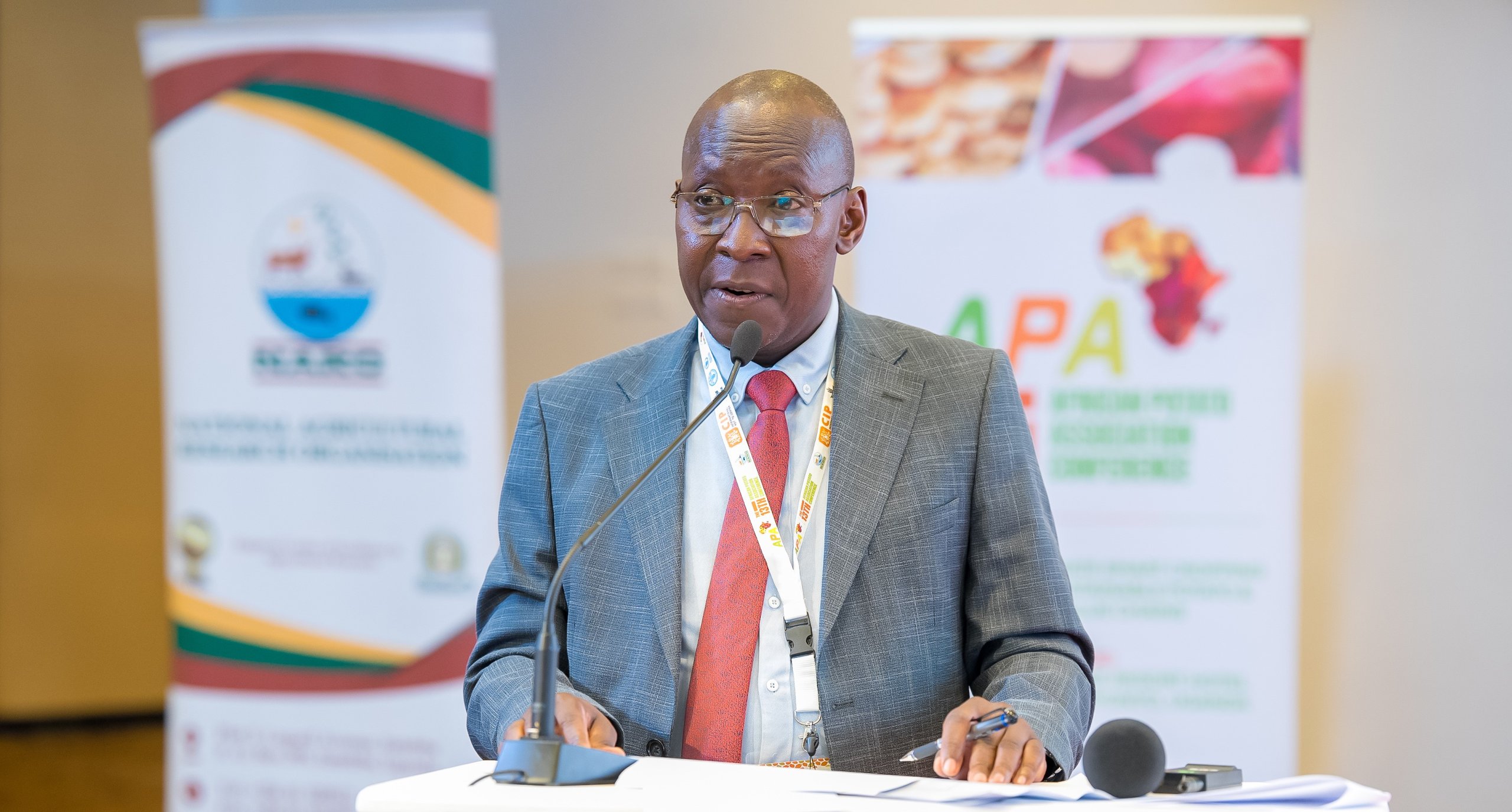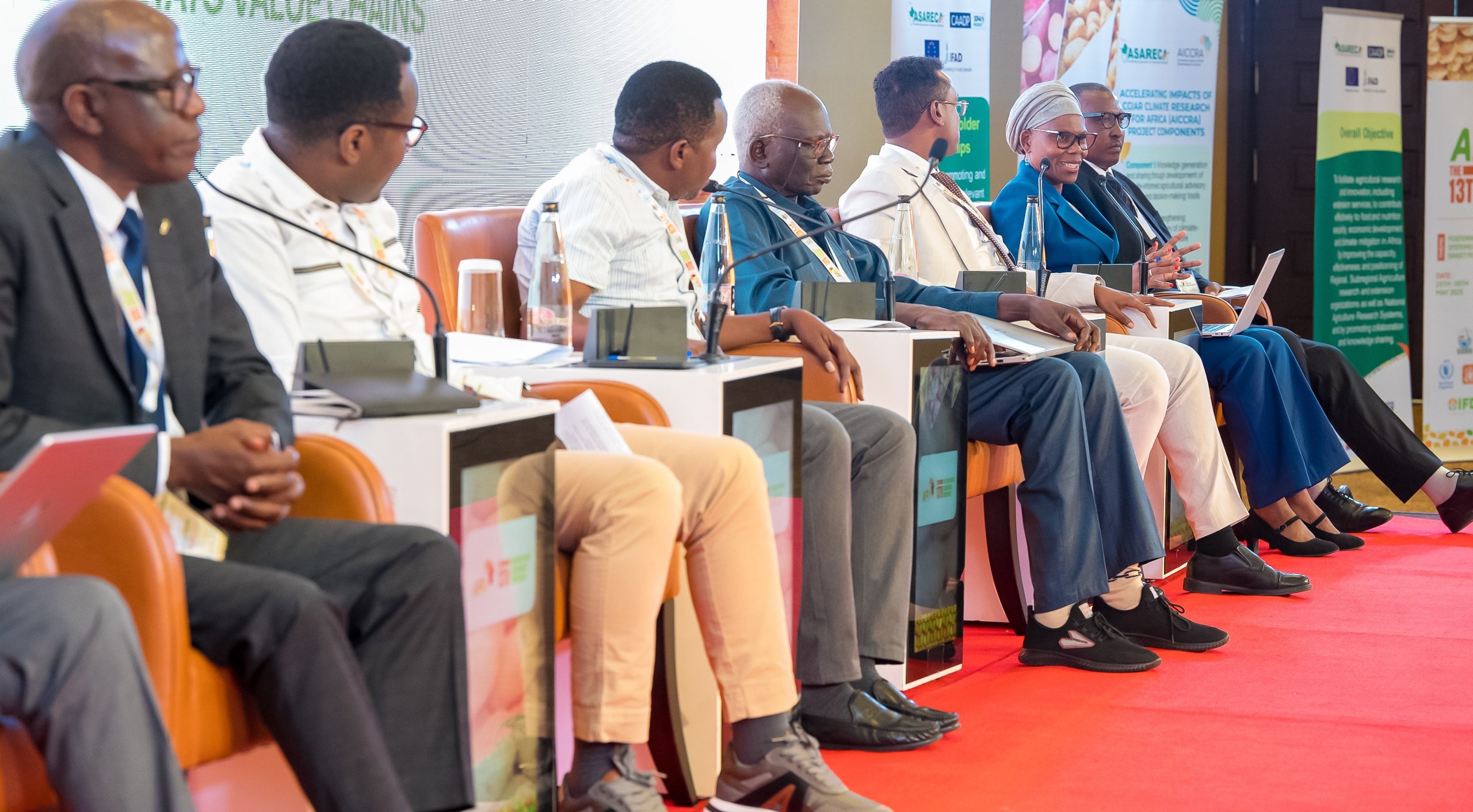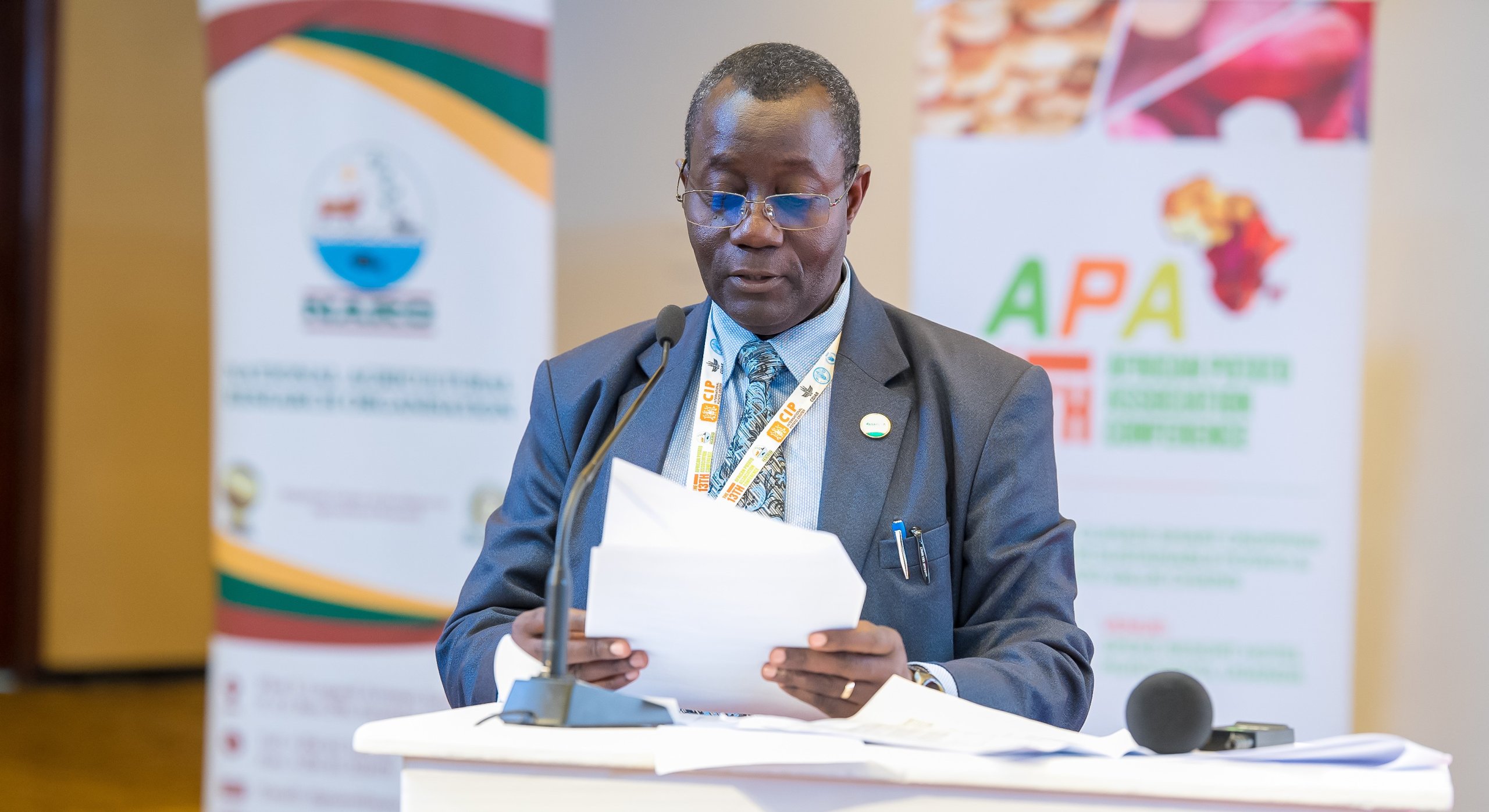ASARECA facilitates stakeholder review of Implementation of the East African Community Regional Seed Potato Strategy and Action Plan
BY BEN MOSES ILAKUT
KAMPALA, UGANDA—The Minister of State, East African Community Affairs for Uganda, Hon. James Magode Ikuya has extolled the value of ASARECA in supporting its 15 Member States in harmonization of policies, guidelines and procedures for sharing Agricultural technologies and facilitating trade in the East African Community and the COMESA regions, thereby contributing substantially to their economies.
In a statement read by the Under Secretary Ministry of the East African Community Affairs for Uganda, Mr. Godfrey Kaima, Hon. Magode said: “One of the core businesses of ASARECA is to facilitate technology spillovers among its Member States. When a country develops an impactful technology that has been proven to address existing challenges and transform livelihoods, all the other member countries should benefit from this technology. ASARECA being the inter-governmental organization has been facilitating the dissemination and transfer of agricultural technologies.”
Hon. Magode noted that quite often, when regional strategies and action plans are developed, there is inadequate or no follow-up at all. “Some countries implement the action plan well, while others struggle to implement them due to several challenges,” he observed.

Commending ASARECA’s close collaboration with the Regional Economic Communities such as the EAC, Hon. Magode and thanked ASARECA for leveraging funds from Development partners and using the resources for strategic interventions including boosting regional trade. “Of course, ASARECA does not work alone. The Movement of technologies across countries requires that the supporting guidelines, procedures and policies are harmonized. As you may be aware, this is not necessarily the case right now,” he observed. “Even within the same Regional Economic Community as the EAC, policies, guidelines and procedures for movement of agricultural technologies across national borders still vary.” He was addressing participants during the Regional Policy Dialogue to Review Implementation of the East African Community Regional Seed Potato Strategy and Action Plan on May 26, 2025, at Speke Resort Munyonyo in Kampala.

The Potato Strategy and Action Plan has interventions and investment measures proposed in four thematic areas which include: Promotion of seed potato production and distribution; strengthening linkages for coordination of the seed potato value chain; promotion of intra-regional trade in seed potato through harmonization of trade facilitation protocols and standards; and support to sustainable development programs along the seed potato value chain.
The Dialogue was organized as a side event during the 13th Triennial African Potato Association (APA) Conference at the Speke Resort in Munyonyo, Kampala-Uganda. The conference running from May 25 to 30, 2025 brought together researchers, policymakers, industry stakeholders, and development practitioners to share insights and innovations, as well as deliberate on the strategic importance of potato and sweet potato to the African economies.

The Regional Policy Dialogue was financed with resources from the Comprehensive Africa Agricultural Development Programme (CAADP-XP4) Programme financed by the European Union through IFAD, and the Accelerating Impacts of CGIAR Climate Research for Africa (AICCRA) Project (https://aiccra.cgiar.org/), in partnership with the Alliance of Bioversity International and CIAT, funded by the World Bank.
In opening remarks, ASARECA Interim Executive Director, Dr. Sylvester Dickson Baguma urged Governments to keenly invest in harmonization of policies and standards to facilitate movement of technologies by the East African Community EAC and the Common Market for Eastern and Southern Africa COMESA partners states.

Praising the partnership between ASARECA and the World Bank and the CGIAR under the AICRRA Project and the European Union and IFAD courtesy of the CAADP-XP4 Programme, Dr. Baguma said, “More than ever before, we are fully convinced that partnerships with global and regional entities such as the EAC is what will lead us towards achieving the Sustainable Development Goals (SDGs) and the post Malabo (Kampala) Declaration targets.”
Through AICCRA and CAADP-XP4 funding, ASARECA was able to facilitate strategic partners from the region including the EAC Secretariat, National Agricultural Research Institutes, Ministries of Agriculture, Farmer organizations and group leaders, Private sector actors and Extension workers to contribute to the Policy Dialogue and overall discourse around potato value chains in the Continent during the APA Conference.
The overall objective of the regional policy dialogue was to review the progress of implementation and domestication of the 10-year EAC Regional Seed Potato Strategy and Action Plan 2022-2032. During the Dialogue Potato value chain actors and key stakeholders were sensitized about existing seed potato regional policies, laws, standards and protocols; the status of implementation of Regional Seed Potato Strategy and Action Plan was established; strategies for articulating seed potato demand and scaling strategies were discussed; barriers for implementation of harmonized seed potato policies and standards were identified and documented; and modalities for tracking implementation of Regional Seed Potato Strategy and Action Plan were discussed and agreed on.
In a keynote speech, the Head of Agriculture and Food Security at EAC Secretariat, Mr. Fahari Marwa explained that the EAC adopted the 10 years Gender-Inclusive Regional Seed Potato Strategy and Action Plan. The strategy aims to attain a competitive and sustainable seed potato subsector in the EAC through enhancement of seed potato multiplication, ware potato productivity, consumption, and trade, toward contribution of wealth creation and development.

He noted that the potato sub-sector offers pathways to enhance food security, create jobs, and foster regional integration. Addressing systemic challenges through innovation, policy coordination, and investment will unlock its full potential, aligning with the EAC Vision 2050’s goal of a prosperous, integrated, and resilient East African region.
“The successful implementation of the Regional Seed Potato Strategy and Action Plan requires the concerted effort of all EAC Partner States and a multi-sectoral approach, including National Ministries of Agriculture, Manufacturing, Trade, and Finance, as well as National Research and Academic Institutions, Private Sector Actors, Non-State Actors, and International Development Cooperation Partners,” he explained.
ASARECA is implementing the CAADP-XP4 project as part of the European Union’s (EU) Development Smart Innovation through Research in Agriculture (DeSIRA) initiative. The project is expected to deliver five (5) key outputs namely: (i) Strengthened capacities of ASARECA and partner organizations in competencies required for successful implementation of the CAADP XP4 project; (ii) Multi-stakeholder partnerships for innovation established and in operation; (iii) Policies in support of climate-relevant agriculture and food systems transformation formulated, investments increased, advocacy and market linkages strengthened; (iv) Knowledge management and communication systems for decision-making and sharing of innovation for advocacy related to climate-relevant agriculture transformation established; and (v) Enhanced planning, coordination, monitoring, evaluation, learning, and reporting. This regional policy dialogue contributes to Activity area 3.1 of the CAADP-XP4 project that focuses on strengthening capacities of regional and national organizations in policy analysis, formulation and advocacy.
Relatedly, ASARECA is implementing the Accelerating Impacts of CGIAR Climate Research for Africa (AICCRA) Project (https://aiccra.cgiar.org/) in partnership with the Alliance of Bioversity International and CIAT – lead institution for the project. The AICCRA project is funded by the World Bank and aims to strengthen the technical, institutional, and human capacity needed to enhance transfer of climate-relevant information, decision-making tools, and technologies in support of scaling efforts in IDA-eligible countries in Africa. The project focuses on 4 major components namely: (i) knowledge generation and sharing through development of climate informed agricultural advisory services and decision-making tools; (ii) strengthening partnerships for delivery of climate-smart innovations in agriculture; (iii) validating climate smart agriculture innovations through piloting; and (iv) project management.
ASARECA with partners organized three national policy dialogues for potato value chain actors in November and December 2024 in Nairobi, Kampala and Kigali that identified policy and structural barriers stifling seed potato value chain development in Uganda, Rwanda and Kenya including the opportunities to reposition Uganda, Kenya and Rwanda and RW as regional leaders in seed potato production and trade.
Some of the actionable recommendations that emanated from national policy dialogues included:
- Aligning national seed policies with EAC and COMESA frameworks to facilitate cross-border trade in high-quality seed potatoes, which involves streamlining certification processes, reducing import/export barriers, and establishing a regional seed trade facilitation unit.
- Upgrading seed certification infrastructure to ensure faster, more affordable, and reliable quality assurance, including enhancing laboratory capacity, establishing regional inspection hubs, and implementing digital traceability systems.
- Decentralizing and promoting mass and rapid production of certified seed potato of popular varieties using rooted apical cuttings through public-private partnerships, which is expected to increase access to disease-free, high-yielding seed.
- Identifying and increasing access to sustainable and low-cost credit for seed multipliers.
- Continuous training and sensitization on the benefits of high-quality seed through various channels such as innovation platforms, digital platforms and demo plots to ensure widespread adoption of new technologies.
